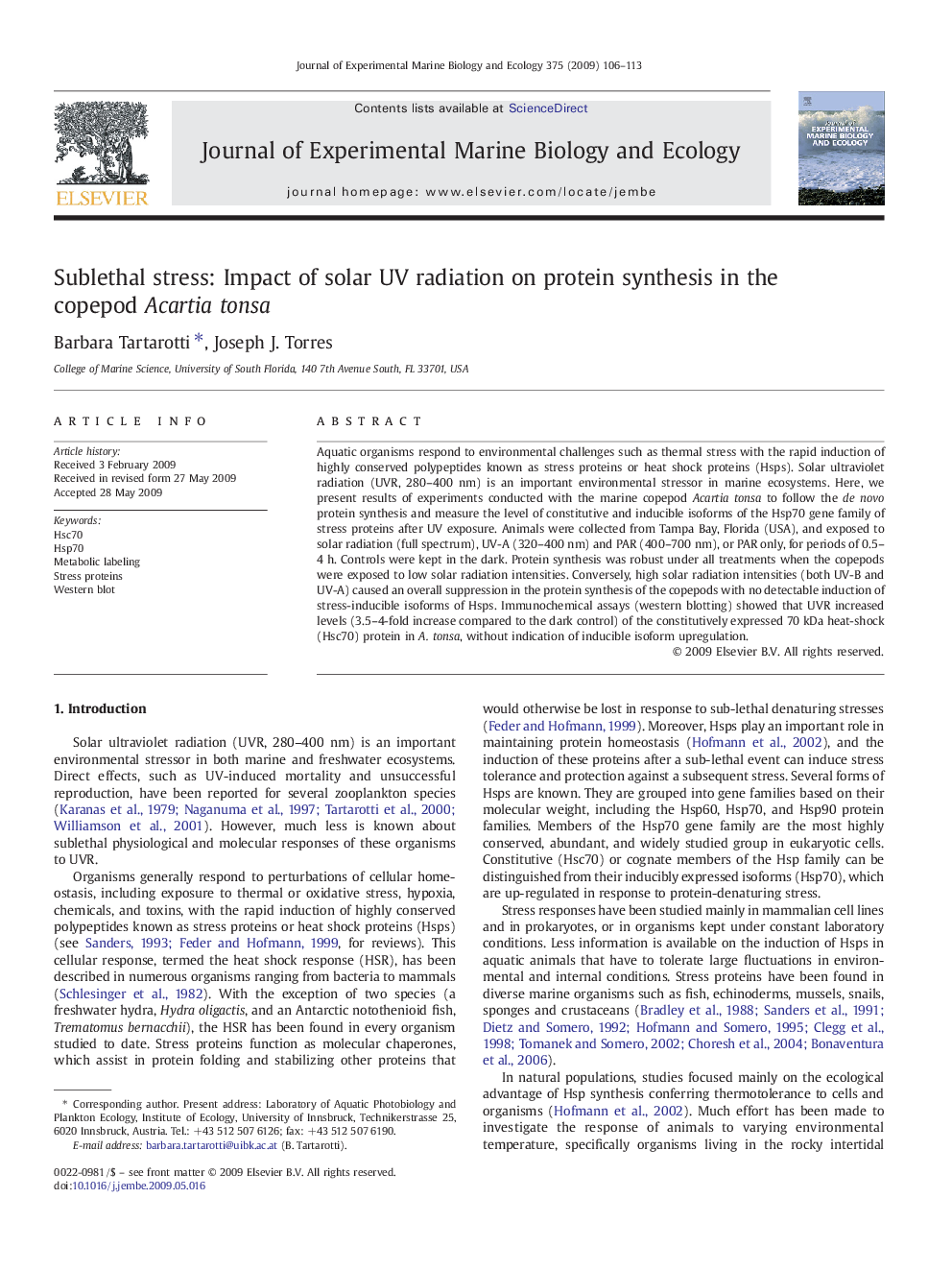| کد مقاله | کد نشریه | سال انتشار | مقاله انگلیسی | نسخه تمام متن |
|---|---|---|---|---|
| 4396936 | 1618480 | 2009 | 8 صفحه PDF | دانلود رایگان |

Aquatic organisms respond to environmental challenges such as thermal stress with the rapid induction of highly conserved polypeptides known as stress proteins or heat shock proteins (Hsps). Solar ultraviolet radiation (UVR, 280–400 nm) is an important environmental stressor in marine ecosystems. Here, we present results of experiments conducted with the marine copepod Acartia tonsa to follow the de novo protein synthesis and measure the level of constitutive and inducible isoforms of the Hsp70 gene family of stress proteins after UV exposure. Animals were collected from Tampa Bay, Florida (USA), and exposed to solar radiation (full spectrum), UV-A (320–400 nm) and PAR (400–700 nm), or PAR only, for periods of 0.5–4 h. Controls were kept in the dark. Protein synthesis was robust under all treatments when the copepods were exposed to low solar radiation intensities. Conversely, high solar radiation intensities (both UV-B and UV-A) caused an overall suppression in the protein synthesis of the copepods with no detectable induction of stress-inducible isoforms of Hsps. Immunochemical assays (western blotting) showed that UVR increased levels (3.5–4-fold increase compared to the dark control) of the constitutively expressed 70 kDa heat-shock (Hsc70) protein in A. tonsa, without indication of inducible isoform upregulation.
Journal: Journal of Experimental Marine Biology and Ecology - Volume 375, Issues 1–2, 15 July 2009, Pages 106–113